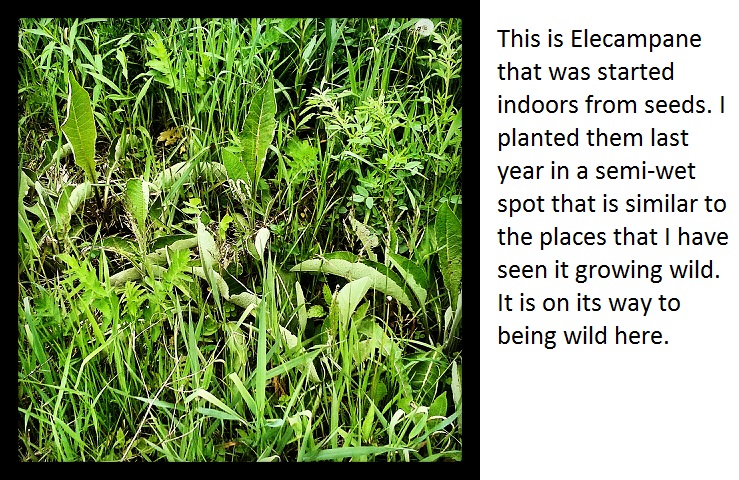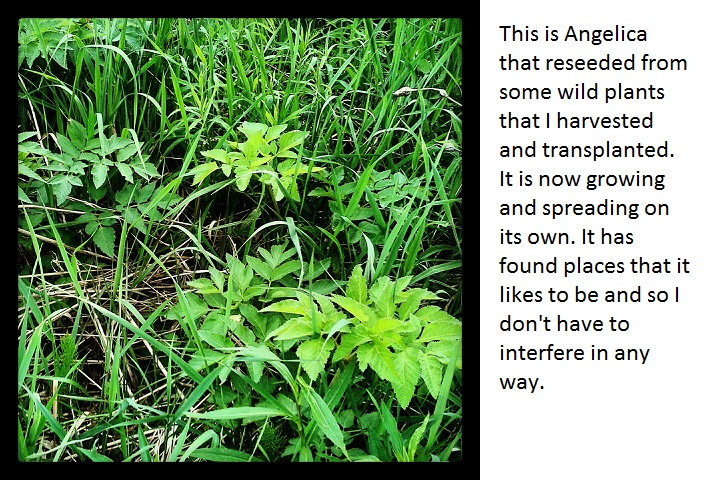Co-Creative Gardening
Using Intuition as Your Garden Guide
Though I do not believe that a plant will spring up where no seed has been, I have great faith in a seed. Convince that you have a seed there, and I am prepared to expect wonders." -- Henry David Thoreau
There are as many ways to garden as there are gardeners, but most garden "How to" books are pretty much the same with very useful information about when to plant and how to keep pests and diseases from your plants. Most of these books contain pictures of weedless gardens where the plants seem to be well aware of their boundaries and don't mix and match themselves or jump ship to the lawn. This is something that I always used to want but, after much frustration and back pain, I realized that this was just not my style.
I have been a gardener my entire life being raised by "hippies" who turned 3/4 of our city backyard into a vegetable garden every year. It never crossed my mind not to start a garden when I had my own yard and it has become one of my greatest passions and practices. As I grew in my herbal studies and learned to wildcraf,t I realized that there are self emergent natural gardens everywhere, although often unrecognized because they lack borders and definition. I also realized how easy it is to harvest a wild food or medicine that does not involve an work, coercion or cultivation on my part. This kind of garden is "no fuss, no muss" and can be created in your backyard depending on the soil conditions, shade and your space limitations.
Gardening for Self Discovery
Gardening has been a true experience of self-discovery and introspection for me, and continues to be as my gardens evolve and my inter-relationship with my land shapes and forms. Creating a garden can begin by first discovering what your desires are and why you want a garden to begin with. Do you want to grow food or medicine or something beautiful? Do you want to experience the process of life that begins from a seed or seedling or do you simply want to be able to provide your own sustenance? Do you want to be able to form a bond with where you are living and the natural cycles and rythm of your home bioregion? I have often spent time gardening in other locations when visiting friends across the country, as I find this brings me a deeper understanding of a climate that I am unfamiliar with, and also begins a conversation between me and the land and plants of a new place.
When we begin this conversation and dynamic interaction between ourselves and nature we can learn a great deal about not only how we like to garden, but how we like to stand in relationship to many things. We will approach this process, as any other in our lives, in our own unique way. We each have a different stride to how we walk in the world and gardening can provide us with a self-reflection that can offer us insight into our own way of being. Working our land and soil can be amazingly helpful in defining our own strengths, weaknesses and individual gifts. Gardening brings us in close contact with our senses and our commitment to bringing something forth that is at first unseen as we plant small seeds in the darkness of the Earth with the trust and faith that they will sprout and grow. Sometimes we may not want to take this chance and prefer to buy already sprouted and soon to flower plants, but even then we must trust that the soil, the sun and the rain will provide what is necessary for these seedlings to survive.
I have found my gardening experience to bring me face to face with all of my emotions including frustration and disapointment when seeds don't germinate or when my seedlings are chopped off by cut-worms. I have been angered by skunks digging up my potato seeds or crows eating my newly sprouted corn. The unpredictability of gardening has taught me a great deal about trusting and letting go, but also about being conscientious and making decisions that will ensure the best outcome such as fencing or making scarecrows. I have also learned persistence at problem solving and replanting as I have chosen to garden as non-violently as possible and so must be creative in the ways that I protect my plants from possible pests and disease.
There is also a great deal of joy to be had from gardening and this is definitely the elixer that keeps us going through the mistakes and failures. The taste of your own food that you grew or the smell of a flower that you cultivated and watched and waited for to bloom, can bring great feelings of connection and love. And to have a wild flower or medicinal plant volunteer in your cultivated garden is always a fun and delightful surprise! These are popularly called weeds.
What is a Weed
One of the most important things I have discovered about myself through gardening and spending time gathering the wild plants is that I love the way nature self-regulates and flows when allowed to do so. Many people call it chaos, but I have not experienced the wild path and pattern of life as chaotic, but as highly intelligent and intuitive in its knowledge and appropriation. It is just not what we as modern time and line consumed people are used to and it may seem undpredictable at times a little unsafe. I have found that with enough observation and patience, I can create wild gardens on my land with plants that self-proliferate with no interference from me. I have created various areas on my land of growth succession where I have intentionally mowed or planted in a way that would happen naturally in the woods or wild meadows.
I have also discovered that I don't like spending all of my time weeding and that I only have to weed what will impose itself on the healthy and diverse plant communities that I have created. Many of the plants that are labeled as weeds are actually medicinal or edible wild plants that can be left alone and harvested right along with plants that I have intentionally planted. This creates diversity and balance. This also adheres to many Old World and Native American beliefs about plants growing nearby to those that need them. It is fun and interesting to see what may show up as an unexpected visitor.
Using Intuition
Co-creative gardening can be done by allowing your own unique desires, personality and way of relating to merge and connect with the natural pattern and life force of your garden space. Some people do this by letting themselves be guided by the energy or essence of the land. This can be known by following a hunch, a thought or image that comes to mind. This kind of communication is subtle compared to how we have been conditioned by our culture, and at first can seem unperceivable. We may find it difficult to discern between our own thoughts and the impulse of the land. This may require some practice and fine tuning for you to hone your ability to receive and act intuitively.
Each of us will have our own natural style of intuition, but some of these may include the following:
Having a dream that offers information about where to plant things or shows you a future possibility of where things have grown
Having an image come to mind perhaps where to start a new garden or where would be the best place to plant a certain species
"Hearing" a thought or phrase in your mind
Allowing yourself to be on autopilot and just move about your garden based on where you feel drawn
Noticing when you've slipped into autopilot or a day dream and made a mistake. These moments are ususally not mistakes, but guidance
Daydreaming
Meditating or journeying
Sketching, drawing or writing
Paying attention to physical or emotional sensations that you experience while making decisions about where or when to plant
These are just a few intuition enhancing techniques with which we can build a dialogue and friendship with the present and emerging spiritual or etheric element of our land. These practices can help us create a interchange of knowing and communication bringing us to our optimum expression of the art and beauty of growing a garden from within and without. Co-creative gardening can be mixed and mingled with other gardening techniques and used more or less with your needs and wants or desired outcome.
Here are a few books that either address growing your intuition or communication with nature:
Partner Earth by Pam Montgomery
Behaving As If the God in All Life Mattered by Machaelle Small Wright
The Secret Life of Plants by Peter Tompkins and Christopher Bird
The Botany of Desire by Michael Pollan






